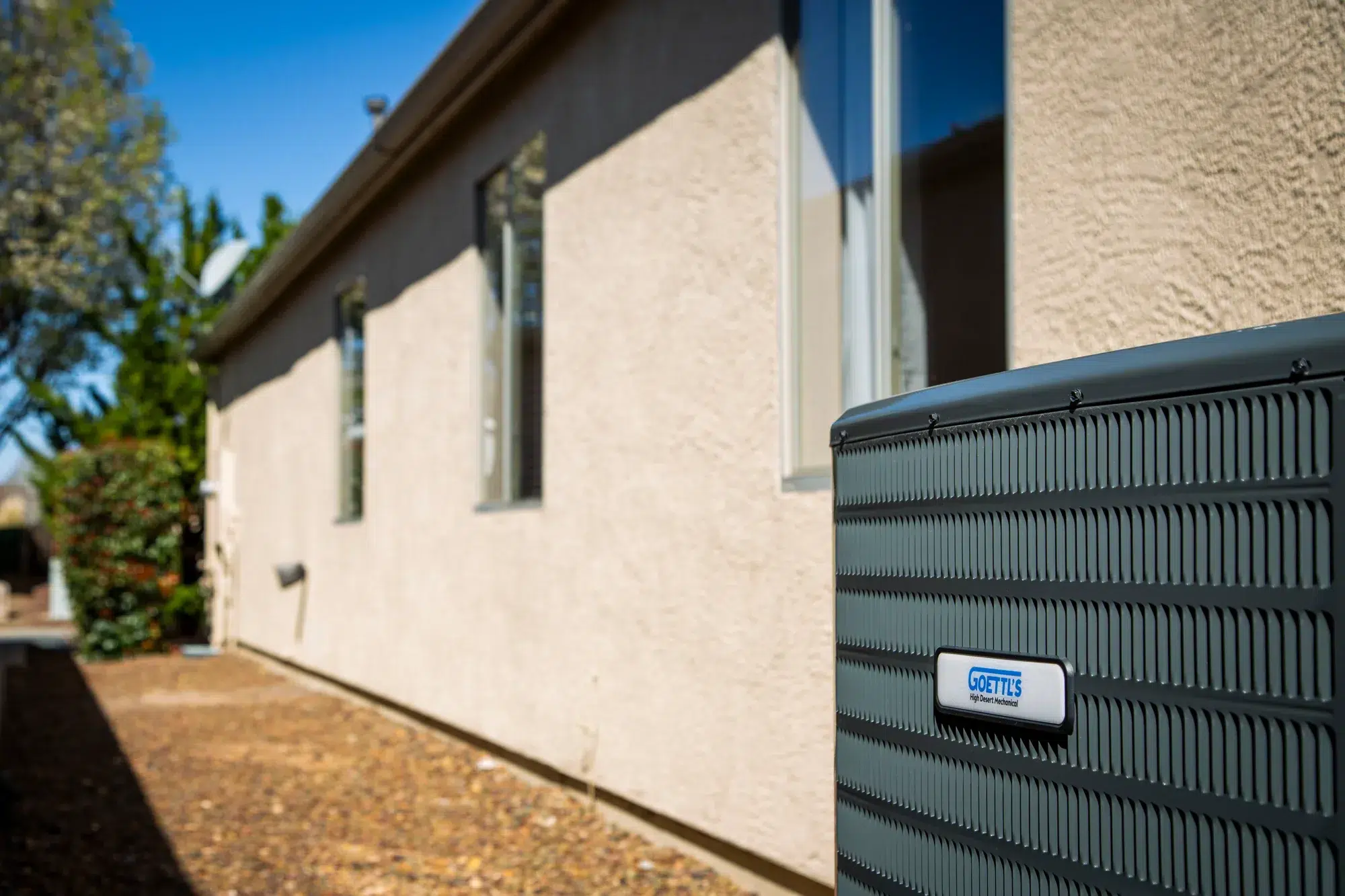Why Controlling Indoor Humidity Matters
One reason that it’s important to try and keep the inside of your home dry is that it directly impacts how hot you feel. If you look at the humidity index, it tells you how hot the air temperature feels based on the relative humidity level, i.e., how saturated the air is with moisture. The higher the relative humidity percentage is, the hotter the temperature feels. If the humidity level inside your house stays at around 45%-50%, you’ll always feel cooler regardless of what the temperature in your home is. High relative humidity prevents sweat from evaporating from your skin as quickly, which limits your body’s ability to cool itself down. If the humidity level is too high, you can even become at risk of developing heat stroke since it can lead to your sweat not evaporating quickly enough to keep your body temperature from increasing.
Another issue when the relative humidity level inside your house is too high is that it interferes with your air conditioning system’s ability to function as well as it should. The reason has to do with two factors known as latent heat and sensible heat. Latent heat is how much heat energy needs to be added or removed from a substance for it to change states of matter, i.e., from a gas to a liquid. Sensible heat is just how much heat energy needs to be added or removed from a substance to raise or lower its actual temperature.
Another way to think about the two terms is that sensible heat refers to the actual temperature while latent heat refers to how hot the temperature feels. Humid air contains much more latent heat, which is why it feels hotter than the actual air temperature. The issue is that it requires more energy to remove latent heat from the air. That means that your air conditioning won’t work as well and will use more energy when your home is more humid. The AC system first must remove much of the latent heat from the air before it can start removing the sensible heat to lower the air temperature. The way that AC systems remove latent heat is through water vapor in the air condensing when it encounters the cold evaporator coil. A drier indoor environment allows an AC system to perform better since it can continually remove more sensible heat because there is much less latent heat it also must deal with.
How Regular AC Maintenance Can Help Combat High Indoor Humidity
One common reason why many homes are overly humid during the summer is that their AC system doesn’t work as well as it should. When working properly, an AC system should be mostly capable of preventing the humidity level inside a home from rising since lots of moisture continually condenses on the evaporator coil. If the AC system has poor airflow or certain other issues, it often won’t be able to remove sufficient moisture each time it runs to keep the humidity level in check. This is one reason why annual AC maintenance is so important since it helps to ensure that the air conditioning system is free of any major issues and functions effectively.
One of the biggest contributors to poor AC performance is a dirty evaporator coil, which is why it’s important to have an HVAC technician clean the coil in your system every year. When an evaporator coil is coated with dust and grime, it becomes partially insulated. That means not as much of the air coming into the system will encounter the copper tubes in the coil. Not only does this reduce how much sensible heat the AC system removes at a time, but it also limits its ability to remove as much latent heat since not nearly as much of the moisture in the air will condense on the coil.
Ensuring that an AC system has sufficient airflow is also extremely important. Issues like a malfunctioning blower, leaky air ducts or a dirty air filter can all contribute to reduced airflow. When the airflow is reduced, the AC won’t cool nearly as quickly since there is much less warm air coming into the system to flow over the evaporator coil. This can then lead to the humidity level quickly rising to the point where the AC will often struggle to keep up since it then must deal with so much latent heat.
Why a Whole-Home Dehumidifier Is a Great Investment
While an air conditioning system can usually manage indoor humidity well, the best way to prevent your home from ever being too humid is to add a whole-home dehumidifier to your AC system. Dehumidifiers also remove latent heat from humid air through condensation, but a whole-home dehumidifier can remove much more moisture than an AC system could on its own. Many whole-home dehumidifiers can capture as much as 10 to 15 gallons of water per day, which is much more than you’d typically need to keep your home from being too humid.
Most whole-home dehumidifiers are controlled by a humidistat and will only run when the relative humidity level in the house is above a set percentage. There may be times when the dehumidifier runs every time your AC does, but it will usually only need to run for a few hours a day to ensure your home’s humidity level stays exactly where you want it to be.
In addition to improving your comfort and preventing potential mold issues that can result from high indoor humidity, a whole-home dehumidifier will also allow your AC to perform much better and use less energy. This is because it will remove enough moisture so that there will be much less latent heat in your house for your AC to deal with.
For 35+ years, Goettl’s High Desert Mechanical has been providing reliable air conditioning, heating, indoor air quality and plumbing services in Camp Verde and the surrounding areas. Our experienced HVAC technicians have what it takes to ensure your air conditioning system functions effectively and energy efficiently. No matter what make and model of AC or heat pump you have, our team can handle all your maintenance and repair needs. We also install whole-home dehumidifiers and a range of other indoor air-quality equipment. To learn more about how we can help you manage the humidity level in your home this summer, contact us today.




